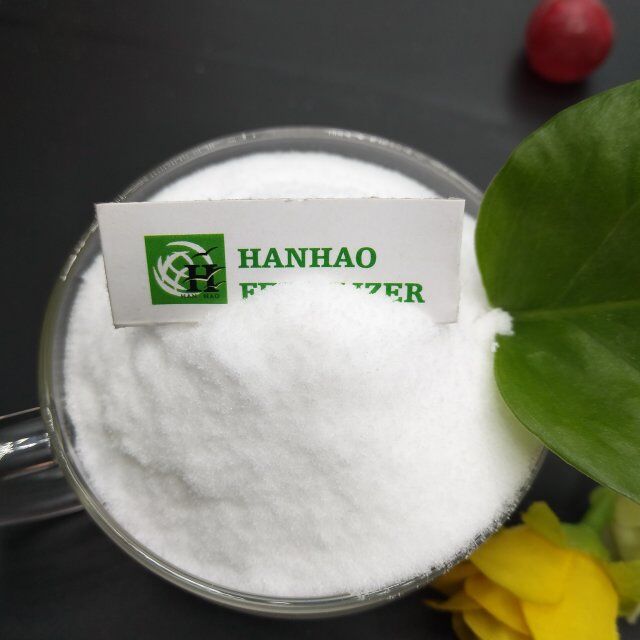
Nov . 06, 2024 19:06 Back to list
Ammonium Sulfate Fertilizer for Tomato Cultivation from Leading Manufacturers
The Importance of Ammonium Sulfate Fertilizer for Tomato Cultivation
Tomatoes are one of the most widely cultivated and consumed vegetables globally, prized for their flavor, nutritional value, and versatility in culinary uses. To ensure optimal growth and yield, tomato growers often turn to various fertilizers, among which ammonium sulfate stands out as a popular choice. This article explores the importance of ammonium sulfate fertilizer in tomato production, highlighting its benefits, application methods, and considerations for manufacturers and farmers alike.
Understanding Ammonium Sulfate Fertilizer
Ammonium sulfate is an inorganic salt that is a rich source of nitrogen and sulfur—two essential nutrients for plant growth. With a nitrogen content of approximately 21% and a sulfur content of about 24%, this fertilizer is particularly beneficial for crops that require high levels of these nutrients, such as tomatoes. Nitrogen plays a vital role in the synthesis of amino acids, helping in the formation of proteins essential for plant health. Sulfur, on the other hand, is crucial for chlorophyll production and aids in the plant's overall metabolism.
Benefits for Tomato Cultivation
1. Enhanced Growth and Yield The primary advantage of using ammonium sulfate in tomato cultivation is its ability to promote vigorous plant growth. The readily available nitrogen encourages lush foliage, which supports photosynthesis. Healthier plants lead to increased fruit set and ultimately higher yields.
2. Improved Fruit Quality Tomatoes grown with the appropriate levels of nitrogen and sulfur often exhibit improved flavor, color, and overall quality. These nutrients contribute to the development of sugars and acids, which are critical for the enjoyment of fresh tomatoes.
3. Acidic Soil Adaptability Tomatoes prefer slightly acidic soils, and ammonium sulfate can help lower soil pH. This alteration can create a more favorable environment for tomato roots, enhancing nutrient uptake and plant health.
4. Cost-Effectiveness Ammonium sulfate is generally more economical compared to other nitrogen sources. Its dual nutrient profile makes it an efficient choice, allowing growers to address multiple nutrient requirements with a single product.
ammonium sulfate fertilizer for tomatoes manufacturers

Application Methods
For optimal results, the application of ammonium sulfate should be done carefully. Here are key considerations
- Soil Testing Before applying any fertilizer, it is crucial to conduct a soil test. This will help determine the existing nutrient levels and the specific needs of the tomato crop.
- Timing Ammonium sulfate is best applied at the beginning of the growing season, as well as during key growth stages, such as flowering and fruit development. Split applications can also be effective, ensuring a steady supply of nutrients throughout the growing season.
- Rates of Application The typical application rate for ammonium sulfate ranges from 100 to 300 pounds per acre, depending on soil tests and existing nutrient levels. It is important not to over-fertilize, as excess nitrogen can lead to issues like excessive vegetative growth and reduced fruit quality.
- Incorporation into Soil To enhance nutrient uptake, ammonium sulfate should be incorporated into the soil either by tilling or during irrigation. This helps prevent nitrogen loss through volatilization.
Conclusion
In conclusion, ammonium sulfate fertilizer is an invaluable tool for tomato growers seeking to enhance plant health and improve yield and quality. Manufacturers play a crucial role in ensuring the availability and quality of this fertilizer, enabling farmers to make informed choices about their soil management practices. By understanding the benefits, proper application techniques, and nutritional needs of tomatoes, growers can maximize their crop's potential, leading to successful harvests and thriving businesses in the agricultural sector. As global demand for tomatoes continues to rise, the adoption of effective fertilization strategies will be key to sustainable production in the face of challenges such as climate change and soil degradation.
-
Premium Organic Manure Compost for Eco Gardens
NewsAug.01,2025
-
Organic 10-10-10 Fertilizer | Balanced Plant Nutrients
NewsJul.31,2025
-
Premium Amino Acid Fertilizer | Rapid Plant Growth Booster
NewsJul.31,2025
-
10 10 10 Fertilizer Organic—Balanced NPK for All Plants
NewsJul.30,2025
-
Premium 10 10 10 Fertilizer Organic for Balanced Plant Growth
NewsJul.29,2025
-
Premium 10 10 10 Fertilizer Organic for Balanced Plant Growth
NewsJul.29,2025
